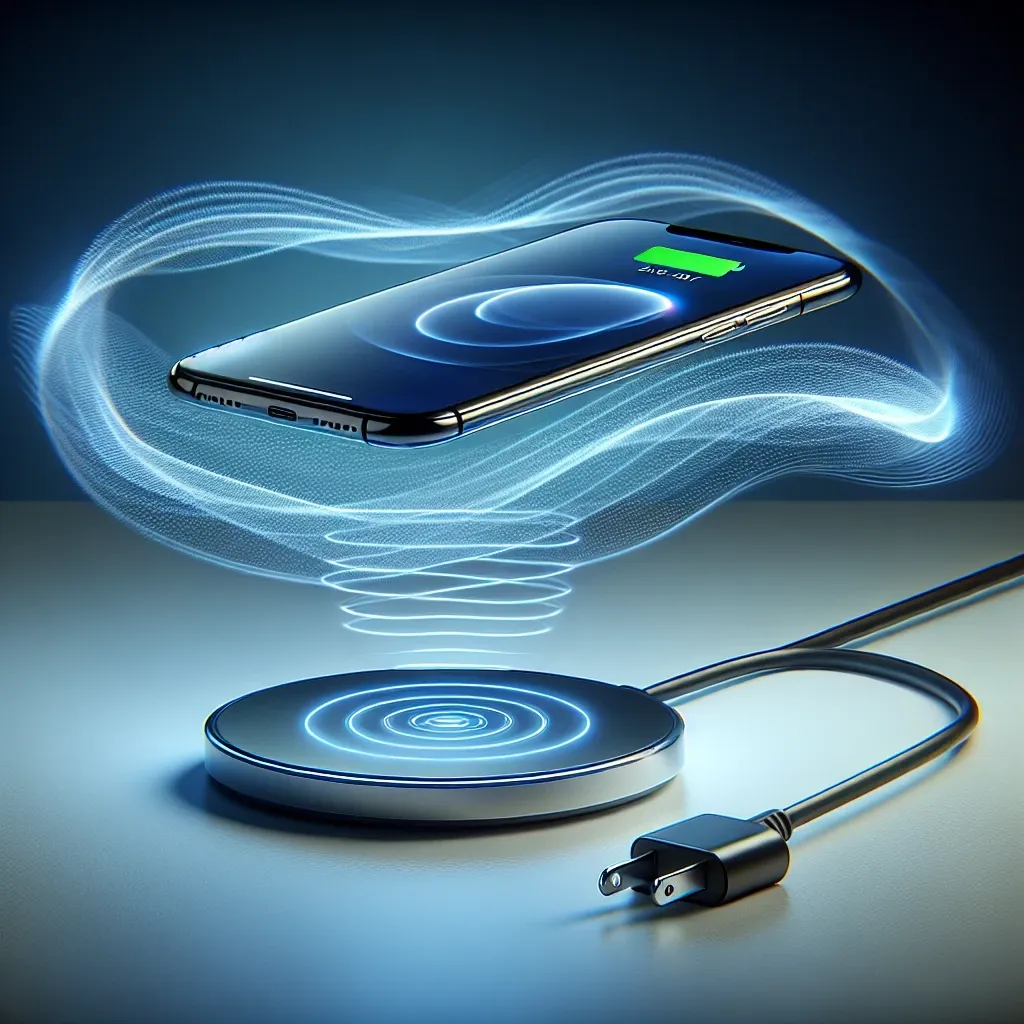Understanding Wireless Charging
Wireless charging, often known as inductive charging, uses electromagnetic fields to transfer energy between two objects. A charging pad generates an electromagnetic field, and a receiver coil inside the phone converts this energy into electricity that recharges the battery.
Advantages of Wireless Charging
- Convenience: Simply placing your phone on a pad is more convenient than finding and connecting a cable.
- Reduced Wear and Tear: Less frequent plugging and unplugging can prolong the life of your phone’s charging port.
- Aesthetic Appeal: Wireless charging pads and stands can offer a cleaner, clutter-free look for your desk or nightstand.
Disadvantages of Wireless Charging
- Slower Charging Speeds: Wireless charging is typically slower compared to its wired counterpart.
- Efficiency: Energy loss during wireless transmission can make charging less efficient.
- Limited Mobility: Your phone must remain on the charging pad, making it less useful for use while charging.
- Pad Compatibility: Not all wireless chargers are compatible with all phones. It’s essential to ensure your charger meets the standards (like Qi) your phone requires.
Understanding Wired Charging
Wired charging involves using a cable to connect your phone to a power source. This direct connection usually ensures a stable and efficient power transfer, typically resulting in faster charging times.
Advantages of Wired Charging
- Faster Charging: Wired charging is usually quicker than wireless.
- Cost-Effective: Wired chargers tend to be less expensive than wireless charging pads.
- Versatility: You can use and move your phone around more freely while it charges.
- Compatibility: Most wired chargers come with universal ports like USB-C or Lightning, making them versatile across different devices.
Disadvantages of Wired Charging
- Wear and Tear: Continuous plugging and unplugging can wear out the charging port on both the cable and the phone over time.
- Cable Management: Managing cables can be messy and inconvenient.
Which One is Better for Your Phone?
The choice between wireless and wired charging ultimately depends on your needs and lifestyle.
If You Value Speed
For those who need to charge their phones quickly, wired charging is the superior option. With rapid charging technologies, such as Qualcomm Quick Charge and USB Power Delivery, wired chargers can juice up your phone in a fraction of the time it would take with a wireless charger.
If You Prefer Convenience
Wireless charging excels in convenience. If you are someone who charges your phone overnight or during extended periods, the slower speed of wireless might not be an issue. The ease of simply placing your phone on a pad and not worrying about cables can be a significant benefit.
For Desk and Bedside Use
For desk or bedside scenarios, wireless chargers can offer a less cluttered and more aesthetically pleasing solution. However, if you frequently use your phone while it charges, a wired charger with a long cable might be more practical.
Conclusion
While both wireless and wired charging have their distinct advantages and disadvantages, your choice should be based on your specific needs. If speed and cost are your top priorities, wired charging might be the way to go. On the other hand, if convenience and reducing wear and tear are more critical, wireless charging could be preferable.

